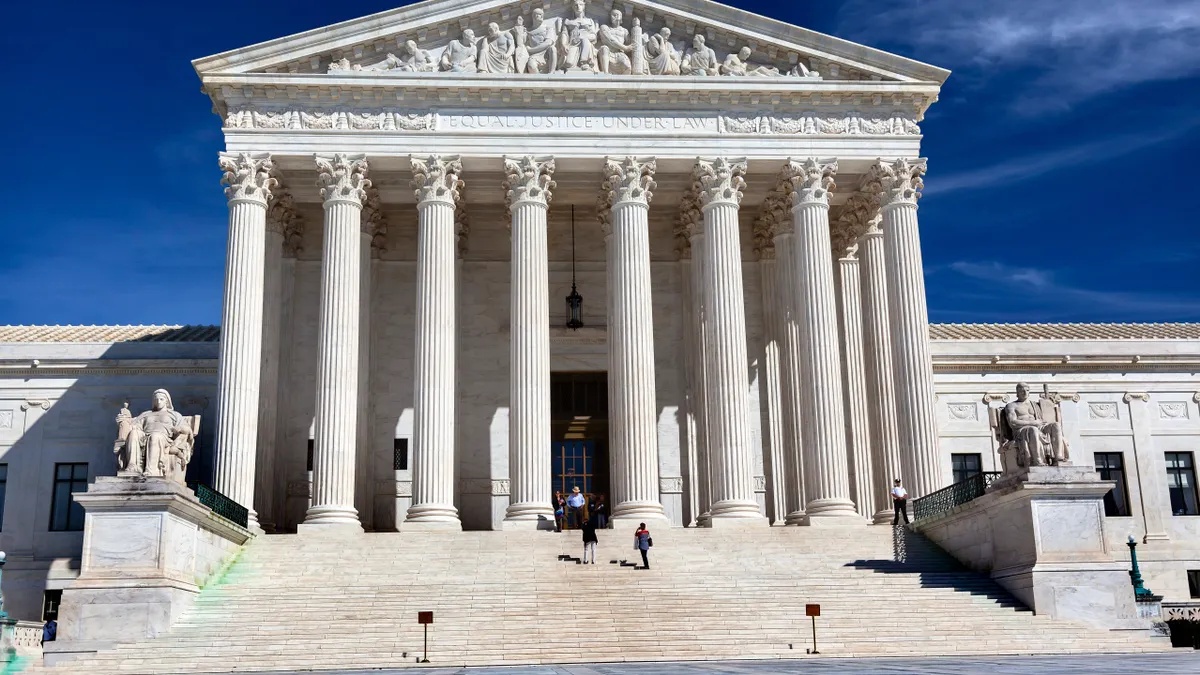Dive Brief:
-
Independent power generators on Monday asked the U.S. Supreme Court to review lower court decisions upholding nuclear power subsidies in New York and Illinois, arguing they violate the Federal Power Act.
-
The Electric Power Supply Association, a trade group, joined generators NRG and Calpine to ask justices to review decisions from federal district court judges upholding the programs. They argue the subsidies are "functionally equivalent" to a Maryland generation program the Supreme Court struck down in 2016.
-
U.S. Courts of Appeals for the 2nd and 7th Circuits both previously ruled the "zero-emission credit" (ZEC) programs for nuclear plants differ from the Maryland program because they do not require participation in wholesale markets regulated by the Federal Energy Regulatory Commission. New Jersey and Connecticut now have similar nuclear support programs, and the subsidies are at the center of ongoing market reform debates at FERC.
Dive Insight:
The generator request could reopen a legal debate over which state power incentives are preempted by FERC's jurisdiction over interstate energy markets.
In the 2016 case Hughes v. Talen Energy, the Supreme Court unanimously rejected a Maryland program that sought to support in-state natural gas generation, saying that it violated the Federal Power Act because it required plants that receive the subsidy to bid into interstate electricity markets that fall under FERC's regulatory authority.
Following that decision, state lawmakers in Illinois and New York structured their subsidy programs for nuclear plants differently. Though the plants covered by the subsidies still elect to bid into wholesale markets, they are not explicitly required to do so to receive the subsidy.
That distinction made the difference in recent federal court cases.
The Hughes decision "draws a line between state laws whose effect depends on a utility's participation in an interstate auction (forbidden) and state laws that do not so depend but that may affect auctions (allowed)," Judge Frank Easterbrook wrote in the 7th Circuit's decision in September.
"New York has kept the line in sight, and gone as near as can be without crossing," Judge Dennis Jacobs of the 2nd Circuit wrote in that court's ruling, decided later the same month.
EPSA and its generator members, however, say that the lack of an explicit obligation to bid into wholesale markets presents little functional difference from the Maryland program.
"In a triumph of form over substance, the court of appeals nonetheless held that New York's program is not preempted because it does not explicitly condition that subsidy on the favored plants selling their output into the wholesale market," the generators wrote in their challenge to the 2nd Circuit decision. "In so doing, the court brushed aside the complaint's well-pled allegations that the subsidized plants have sold, and necessarily must sell, all of their output at wholesale, rendering unnecessary an explicit statutory requirement to do so."
In the district court cases, judges said the generators had failed to draw a distinction between the nuclear programs and renewable energy credits (RECs), which have long been considered legal under the FPA. The companies attempt to separate the two in their Supreme Court petition.
"First, all qualified renewable generators create RECs, regardless of economic need, whereas ZECs are available only to three nuclear plants facing financial difficulties," they wrote in the New York challenge. "[S]econd, RECs are publicly traded, so the price of RECs varies based on supply and demand, whereas ZEC prices are set by the state and tethered to wholesale rates."
Some energy lawyers, however, are concerned that interpretation could lead courts to throw out renewable energy programs that exist in more than half of U.S. states.














